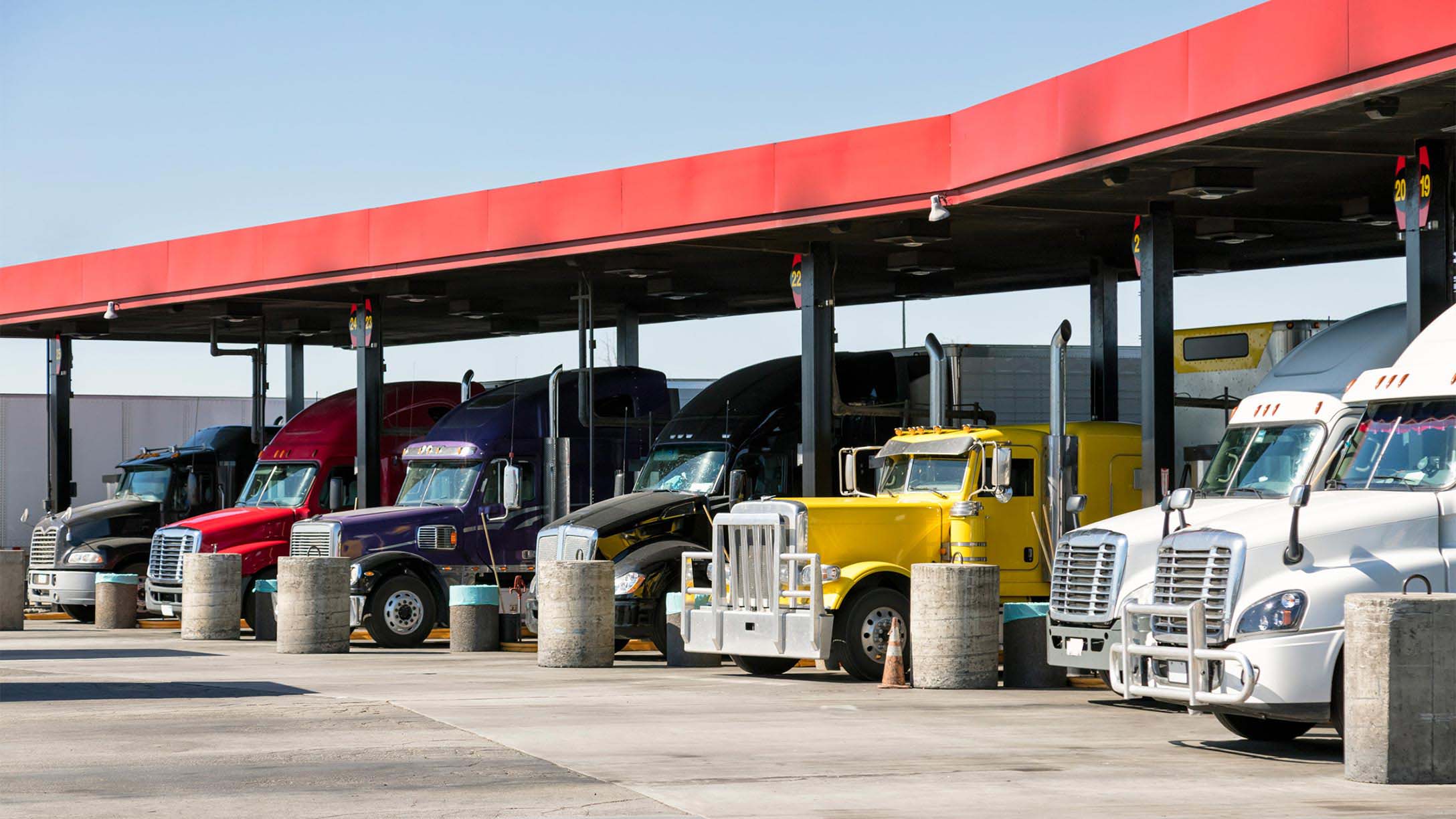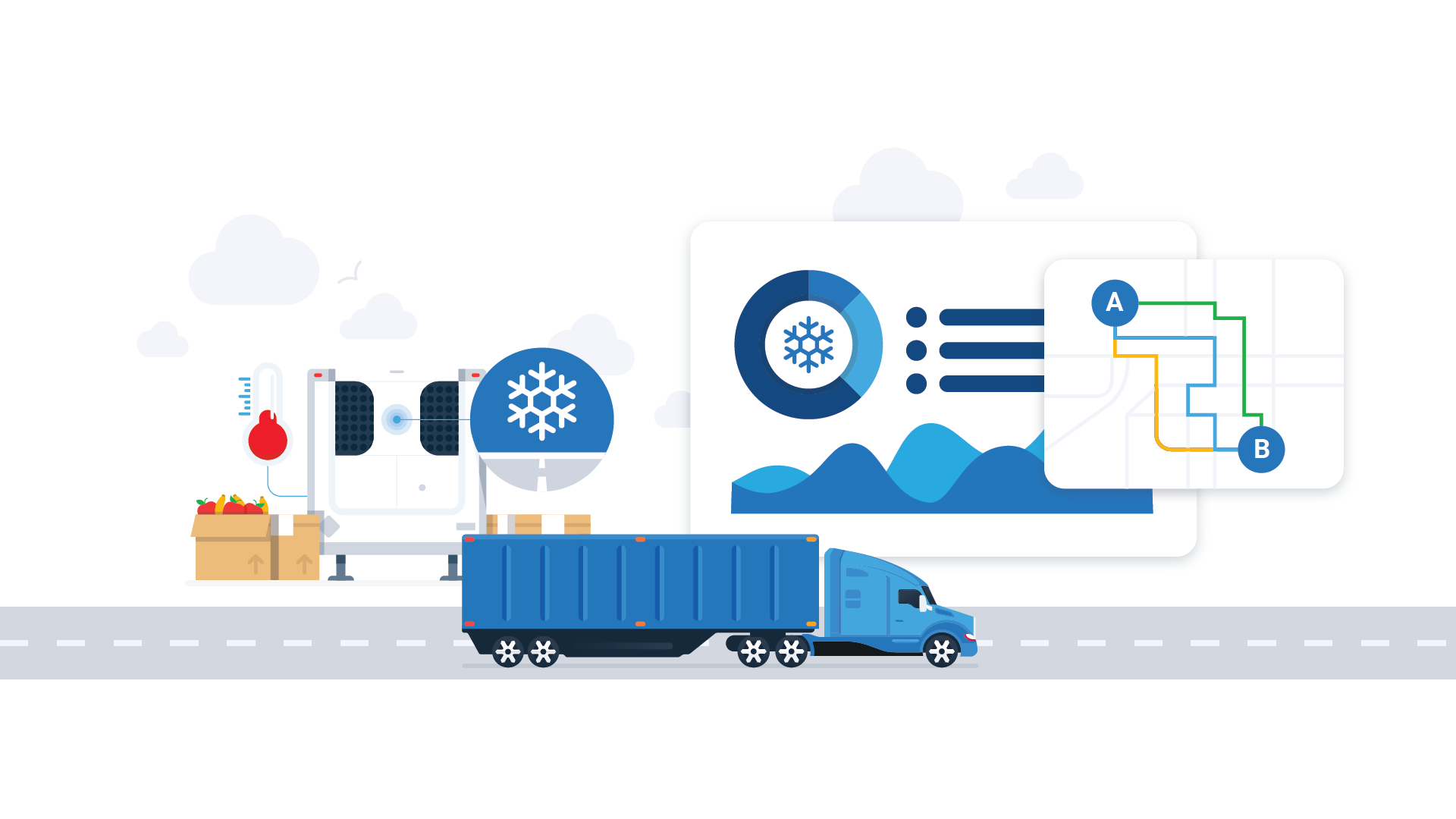Extra tools to make IFTA fuel tax reporting easier
Get tips on IFTA fuel tax reporting with Geotab, including importing fuel data and troubleshooting advice.
By Geotab Team
Apr 24, 2023

The International Fuel Tax Agreement (IFTA) is an agreement between Canada and the United States that provides uniform rules for how fuel usage is reported by vehicles crossing multiple jurisdictions. Preparing IFTA filings can be a challenge, especially if fleets rely on manual reporting. Missing paperwork, incorrect entries, overpayment or delays are some of the issues that can arise.
See also: The Watchdog Report: Maintaining a healthy fleet
To help fleets with their IFTA process, Geotab created a number of resources which help improve accuracy, reduce paperwork and administration costs and minimizes the risk of violations. Generating a mileage report for IFTA fuel tax reporting in MyGeotab is quick and easy. There are also some extra features that can help fleet managers and owners of large fleets in particular.
If you want to learn more about IFTA, please start with this post: What is IFTA?
How to import fuel data into MyGeotab
Fuel usage calculations in Geotab’s fuel tax reports are based on fuel card data. The four methods of importing fuel data into MyGeotab are:
- Fuel Transaction Import Add-In — An Add-In for MyGeotab to read fuel card transactions from a file and import to a database. Available on GitHub.
- Fuel Transaction Provider Add-In — An Add-In for MyGeotab to enable automated fuel transaction importing once per 24 hour period based on the customer ID of fuel transaction providers. Currently supported providers include Comdata, Fuelman and WEX. Available on GitHub.
- Geotab Fuel Tracker app — An Android app to add the total cost and volume of fuel from mobile devices when purchasing fuels. The information is saved to MyGeotab and can be viewed in the app and in the MyGeotab software. Find on Google Play.
- Fuel Tracker Marketplace Add-In — An Add-In for Geotab Drive that has a similar interface to the Fuel Tracker Android app. Simply use the fuel receipt to enter fuel purchase details to track fuel economy, fuel cost, cost per fill-up, monthly fuel spending and locations of fill-ups. Find Fuel Tracker on the Geotab Marketplace.
It is worth noting that imported fuel data are included in the Advanced Fuel Tax Report. Running the report on a monthly or quarterly routine is recommended for accurate results.
More IFTA fuel tax reporting tips for Geotab users
Toll road distance
Toll road distances traveled along the New York Thruway and Massachusetts Turnpike are identified as the FuelTaxTollRoad column in the hidden Data sheet of the Advanced Fuel Tax Report. These mileages can be added to the Report and Summary sheets as well as the Data sheet of the Default Fuel Tax Report. Fleets can track trips on other toll roads by creating zones along the route and defining the associated rules.
Authority Switcher
Drivers can specify the authority under which the vehicle was operating for a trip (for household goods carriers). These records can be viewed under the column FuelTaxAuthority in the hidden Data sheet of the Advanced Fuel Tax Report. The feature allows users to identify whether they are operating as a lessor or lessee. Drivers can identify the authority during a trip using the Authority Switcher Add-In for Geotab Drive.
Marketplace reports for troubleshooting mileage
If you notice any incorrect mileage in the IFTA report, the following Marketplace reports are helpful in identifying potential causes of the issue:
- Watchdog Report — The built-in and custom Watchdog Report monitor the health of Geotab GO devices by finding telematics connectivity issues. It tracks the last communicated dates via GPS records, or last engine or accelerometer status data if Personal Mode is active.
- Telematics Device Issue Detection — The Telematics Device Issue Detection report provides insight into GO device-related issues in a fleet. It includes a breakdown of detailed telematics device faults, what those faults are, and how they can be troubleshooted to restore normal functionality.
- IFTA Troubleshooting Report — The IFTA Troubleshooting Report lists differences between GPS and odometer data.This data validation tool helps users determine if mileage data are valid and compliant for IFTA requirements.
- Odometer Jumps Report — The Odometer Jumps Report is used to identify gaps in Engine Control Module (ECM) based odometer values. Using raw (ECM based) odometer values and device unplugged events, it calculates the length of time the device was unable to record raw odometer data and the distance the vehicle drove without a telematics device connected.
For these reports and more, please visit marketplace.geotab.com.
Setting up a data feed with the Geotab Software Development Kit (SDK)
If customers and/or auditors would like data represented in a different format than what is available in the existing reports, customers and resellers are able to use Geotab’s open Application Programming Interface (API) environment to deliver data in any way required. Code samples are available in Javascript and .NET to help developers get started.
The MyGeotab SDK also allows users to set up feeds to receive telematics data from their GO devices. This function can also be run in the background as a Windows Service. The feeds are separated into different objects. For the purposes of IFTA, the two most important objects are:
- LogRecord — Records of log entries containing devices’ positions and speeds at specific time.
- StatusData — Records extracted from the engine system of specific vehicles. The odometer records are of particular interest for IFTA. The displayOdometer.html Javascript example can help developers better understand the procedure behind retrieving odometer records.
Our API reference page contains detailed information on all methods and objects in the MyGeotab SDK. To learn more information about IFTA, check out our IFTA/IRP Compliance Manual.
Related:
Quick Guide: MyGeotab IFTA Report
Subscribe to get industry tips and insights
Geotab Team
The Geotab Team write about company news.
Table of Contents
Subscribe to get industry tips and insights
Related posts


Best ELD for trucks: Top devices for compliance and safety [2026]
December 18, 2025
6 minute read


Best ELD for owner operators: Top 6 picks and how to choose one
December 1, 2025
6 minute read


Infographic: Upgrading your cold chain solution to minimize waste and maximize profit
September 11, 2025
1 minute read